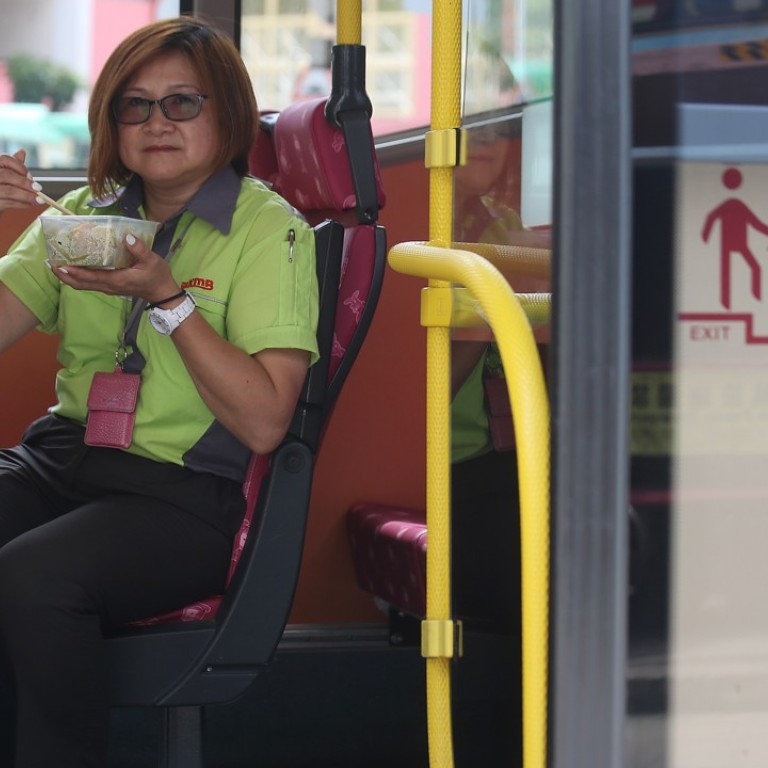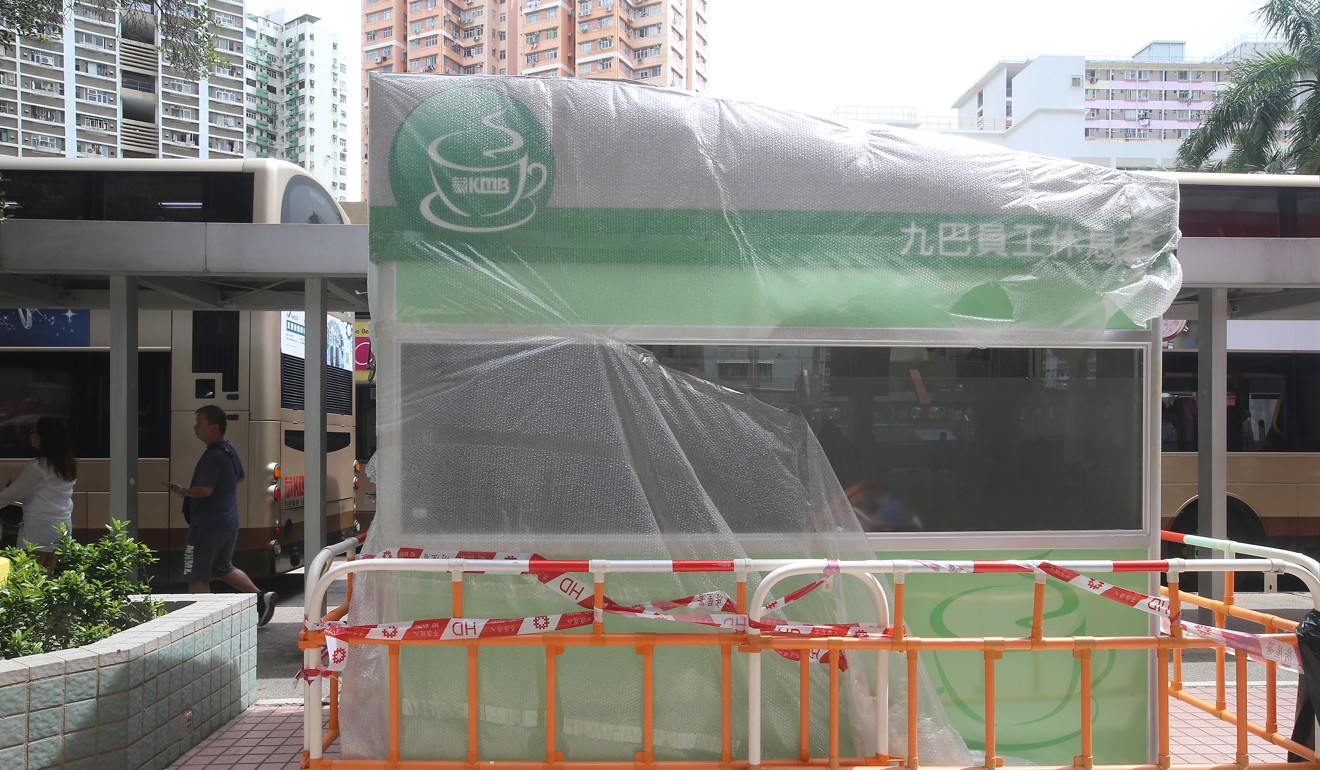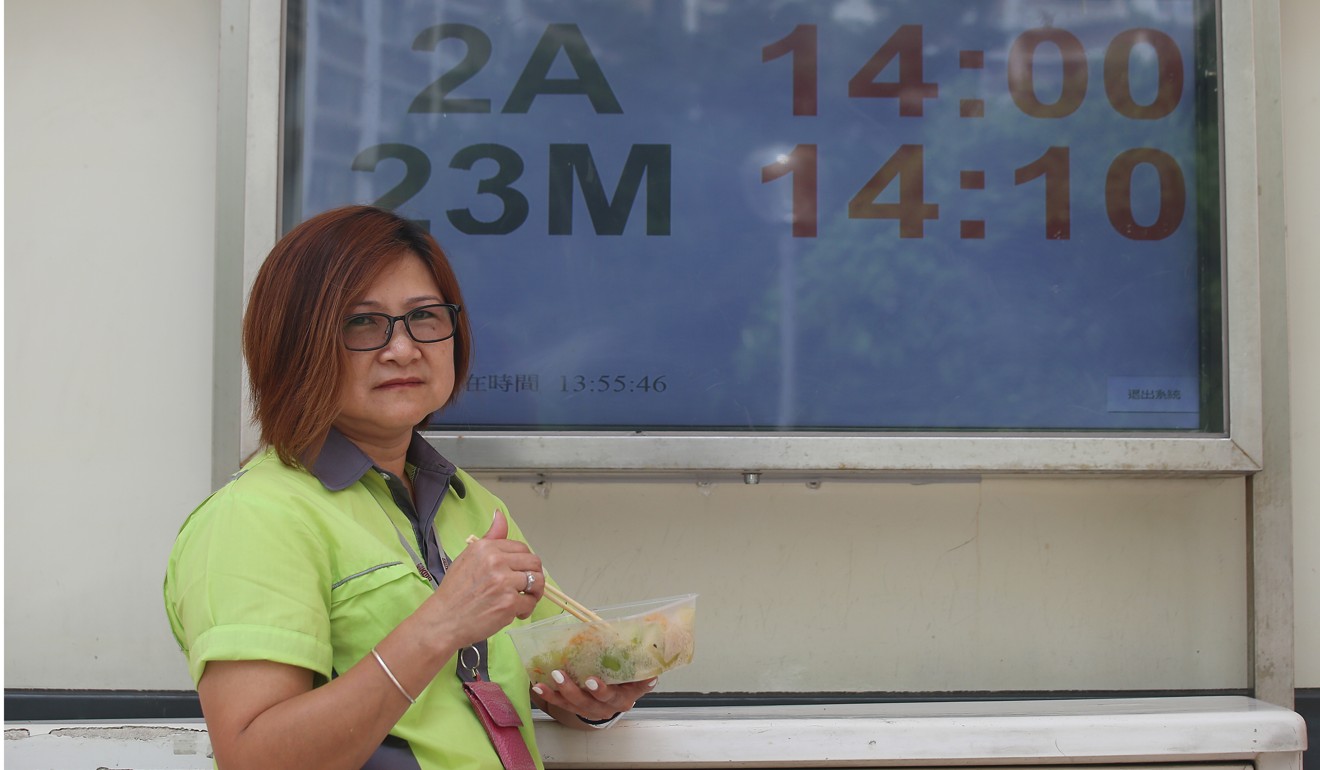
Red tape forces Hong Kong bus drivers to break law when cooling off
While city’s biggest operator KMB awaits approval for a proper rest area, staff beat the heat inside a single decker on which the engine idles for more than 12 hours a day
Spare a thought for drivers of Hong Kong’s biggest franchised bus company in the sweltering summer heat.
KMB drivers have been reduced to taking breaks between shifts in an air-conditioned single-deck bus and breaching the law against idling engines because they cannot have a proper kiosk at a terminal in Ngau Tau Kok due to government red tape.
Since about a week ago, up to 80 drivers have been relying on the single decker to cool off at the Lok Wah bus terminal, with the engine running for more than 12 hours a day, because the government has yet to approve KMB’s application over four years ago to set up a kiosk there.
KMB’s new red and silver buses to greet Hongkongers by end of June
“The recent hot weather has been putting in jeopardy the health of frontline staff, in particular bus captains, which may in turn affect the safety and quality of bus services to passengers,” a KMB spokesman told the Post.
Using a bus with the engine running all day was only a temporary measure while awaiting approval for the rest facility from government departments, the spokesman said.
Under the law, franchised buses can be exempted from prosecution for idling engines when there are passengers on board or when they are ready for boarding. Bus drivers are also exempted from the law when the “very hot weather” warning is in force.
The drivers’ union pointed out that the Lok Wah situation was not an isolated case and estimated that about 30 per cent of the company’s bus terminals lacked a rest facility. Some applications to have them built had taken as long as 12 years for approval, the union said.
“We are exposed to the heat and the rain here. It’s also very dusty,” KMB driver Yuen Fung-yee, 52, said. She has been based at Lok Wah for two years without a shelter.
A supervisor’s kiosk was built at the terminal, but it can accommodate only two people at a time and is used as an office as well as a space for drivers to access water and microwave food.
“Without a place to sit, I can’t even have a proper rest during my break,” Yuen said. “But as a driver, I have to stay awake as many lives are in my hands.”
She had started her 9½ hour shift at around 5.30am on the day the Post interviewed her last week, with the temperature going up to 32 degrees Celsius but no very hot weather warning.

According to the Housing Department, KMB had been seeking permission to build the rest facility since 2013 but the application was not successful because it would involve adding to the gross floor area officially allocated to Lok Wah public housing estate. Approval is also required from the Link Reit, which runs the estate’s retail space, and the Lands Department.
The body representing the estate’s residents and managers has also strongly opposed some locations for the facility proposed earlier.
Lai Siu-chung, deputy director of the KMB branch of the Motor Transport Workers General Union, said kiosks at some older terminals such as the ones at Chuk Yuen Estate in Wong Tai Sin and Hollywood Plaza in Diamond Hill had taken up to a decade to be built, as it was difficult to get the consent of residents and district councils.

Franchised operators New World First Bus and Citybus said rest facilities were provided at 60 out of their 82 terminals.
The MTR Corporation said only three out of its 15 bus terminals lacked such facilities, while New Lantao said all its five terminals were adequately equipped.
Transport Department guidelines concerning bus drivers’ occupational health specify only that such workers should get at least 30 minutes of break after the first six hours of duty, but they do not address shelter needs.
Professor Shelly Tse Lap-ah, an occupational health expert at Chinese University, said drivers needed proper rest between shifts to relax their muscles after long periods behind the wheel.
“Drivers might not be able to focus on driving if they do not rest properly, which might increase the chance of accidents,” Tse said.
Former Chartered Institute of Logistics and Transport president Leung Kong-yui urged government departments to speed up the application process for bus companies’ rest facilities.
“Can the Transport Department coordinate instead of leaving the bus companies to seek approval on their own?” Leung said.
The Lands Department said the vetting of KMB’s application for the Lok Wah facility would be finished early next month.
The Transport Department has yet to respond.

